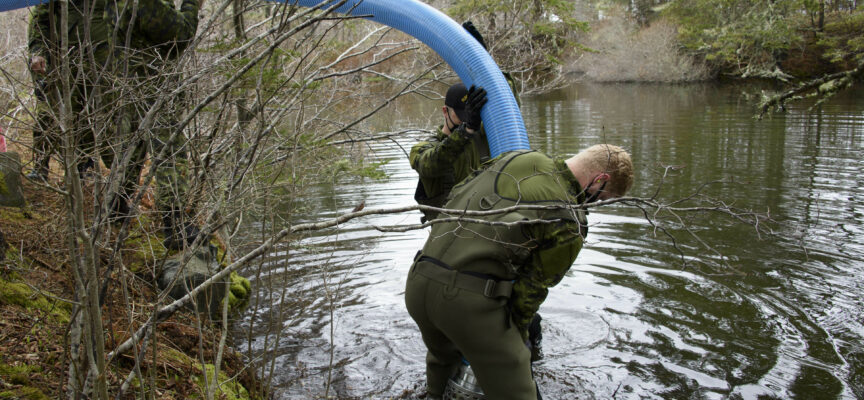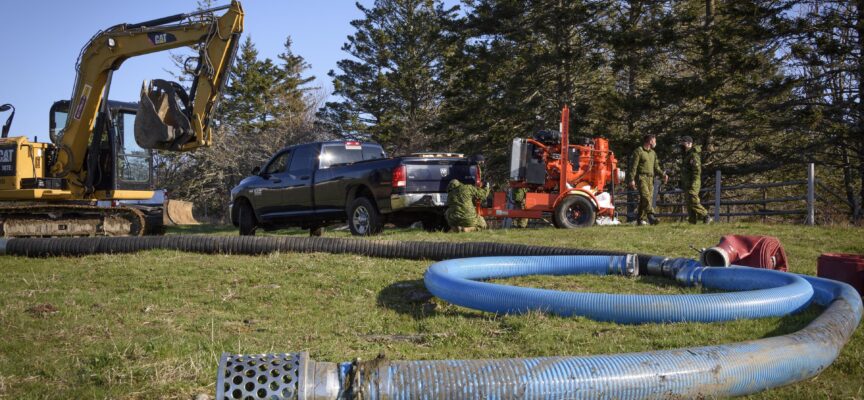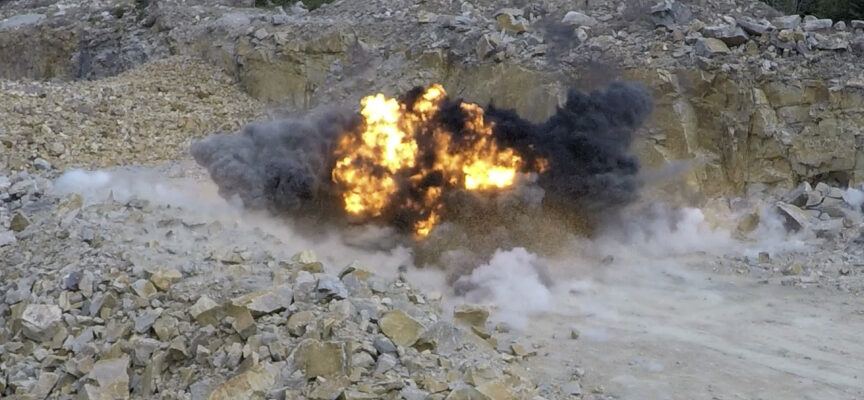DCC played an important behind-the-scenes role in removing and detonating a piece of Second World War-era unexploded explosive ordnance (UXO) found in a pond in Yarmouth County, Nova Scotia.
Between April 26 and 30, 2021, the pond was drained, and an excavator removed the 225-kg UXO and carried it to a disposal truck for transport to a local quarry for detonation.
It wasn’t quite as easy as that sounds, however, notes Deanna Brewster, Coordinator, Environmental Services at DCC’s Halifax office.
Which Canadian Armed Forces unit responds to reports of found UXO depends on whether they are on land or in the water. This was both.
Moreover, the pond is located on what is now private land (but used to be a bombing range for nearby Royal Canadian Air Force Station Yarmouth) and feeds tidal water. This required the involvement of the province and Fisheries and Oceans Canada, who also issued permit requirements for the project, since the UXO removal ended up unavoidably taking place during freshwater fish spawning, migratory bird, and bat and turtle nesting seasons.
“And, of course, coordinating all these players and getting the right people to the site became extra challenging because of the pandemic travel restrictions in force at the time,” Brewster recalls.
Brewster’s fellow Coordinator, Environmental Services, Yvonne Chabassol—who was an integral part of the project—gathered all the essential information from the various players for the necessary environmental assessment and then developed a plan for carrying out the project with as little environmental damage as possible.
DCC also commissioned a consultant to conduct environmental monitoring during the draining of the pond and UXO detonation, and to direct site restoration activities.



